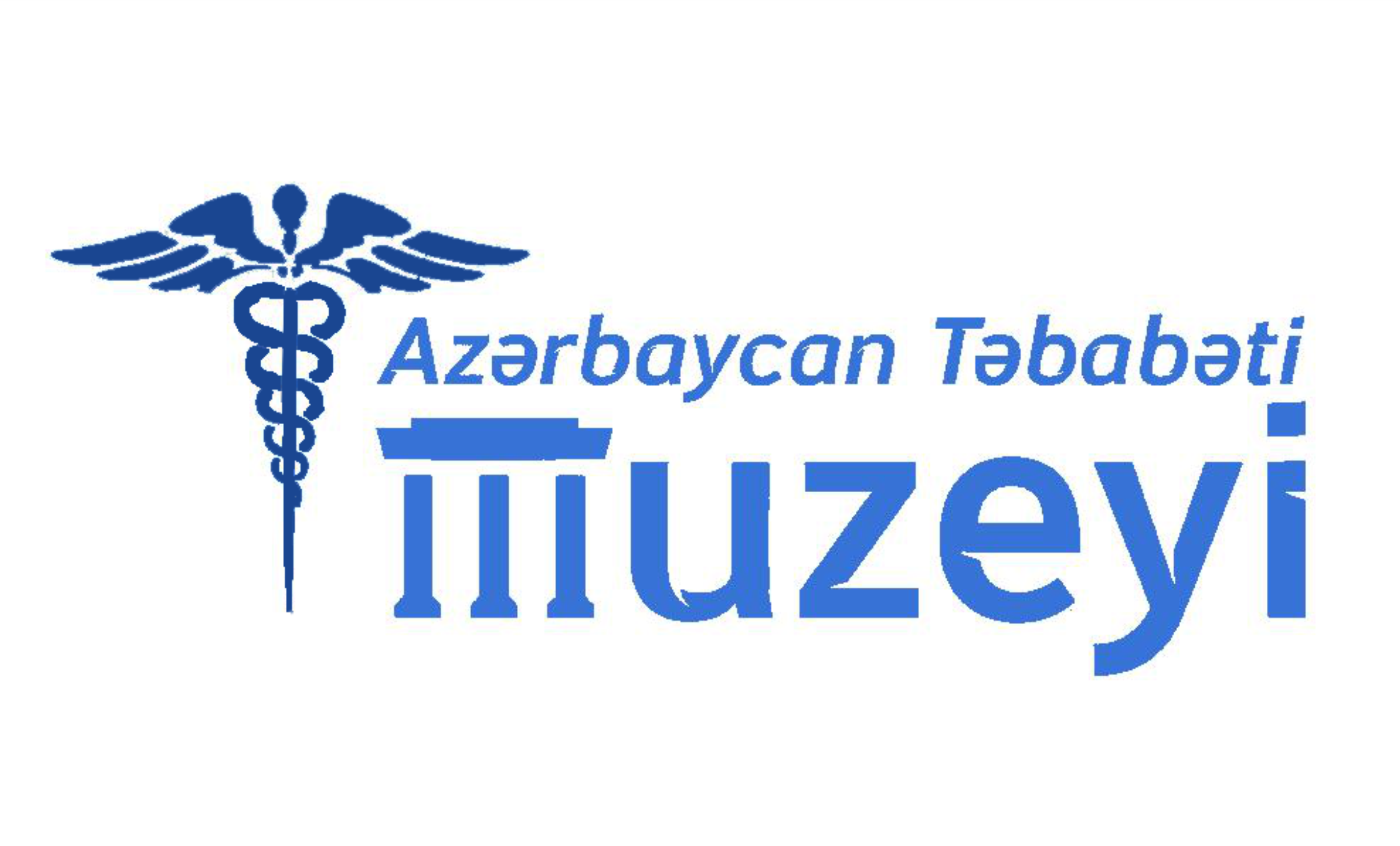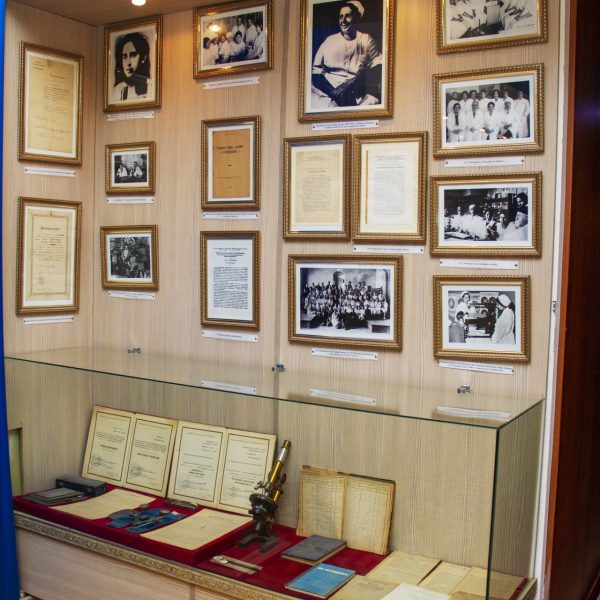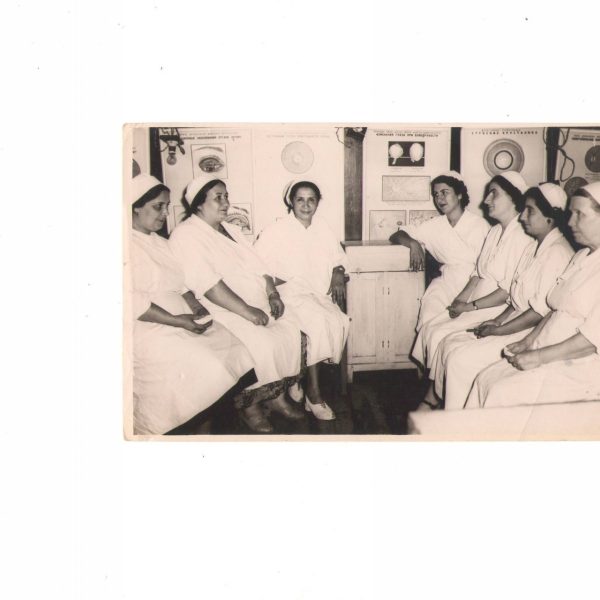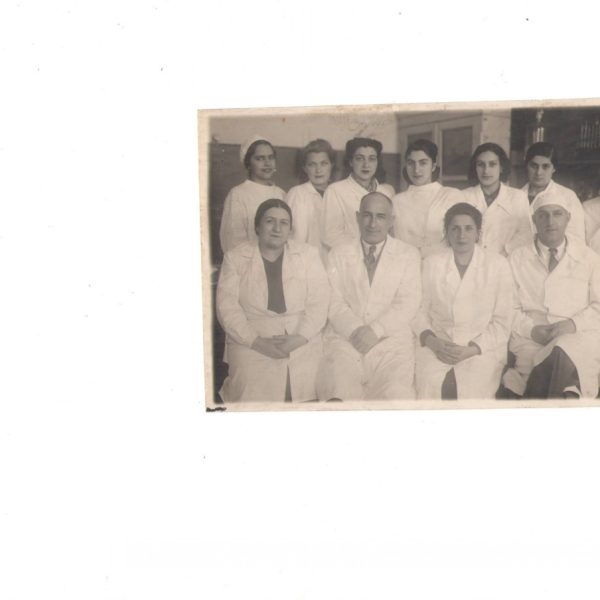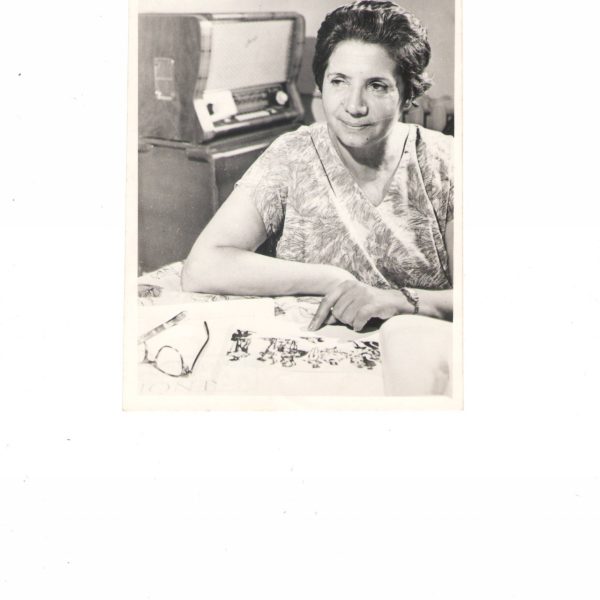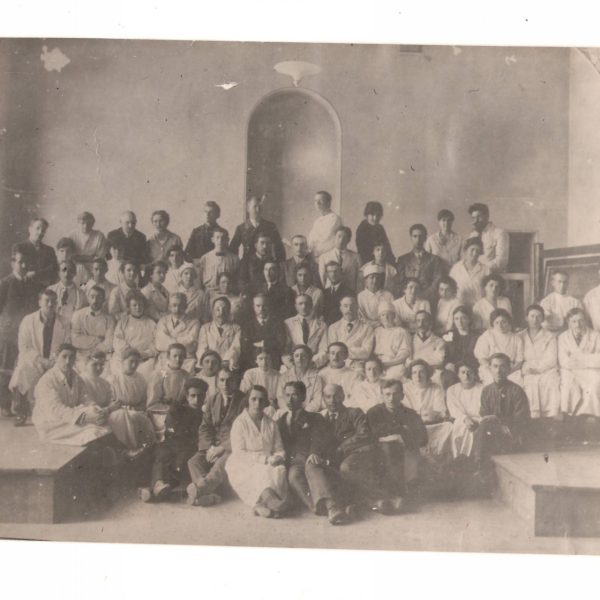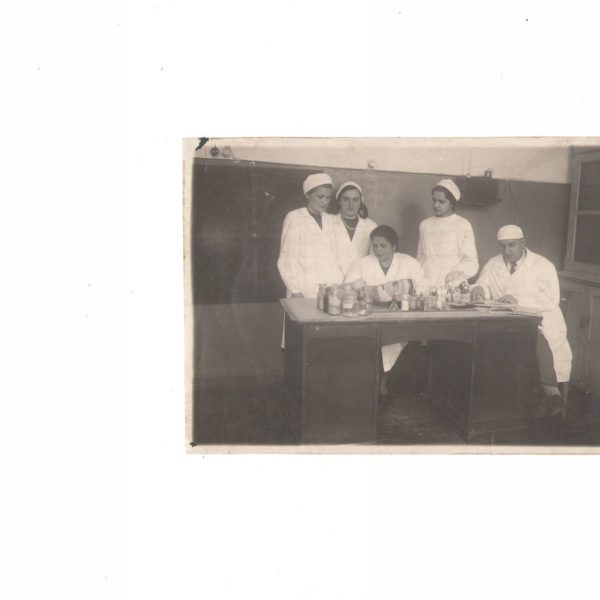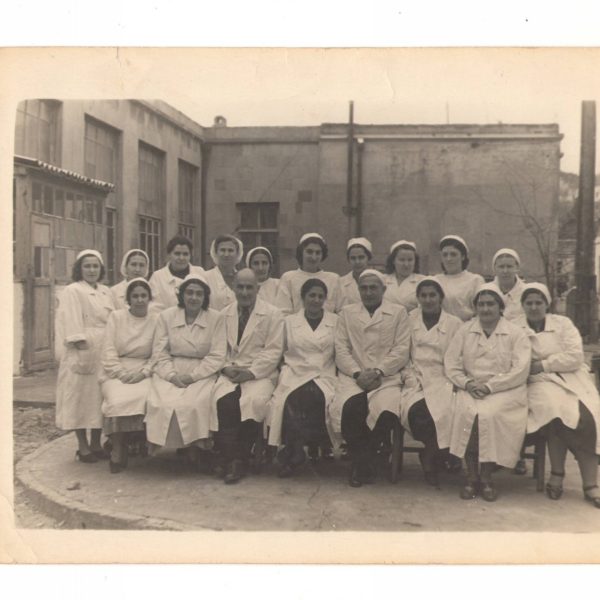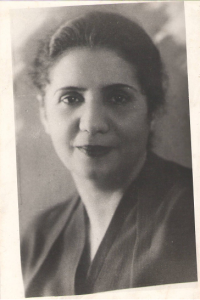
Umnisa Musabekova
Having received a secondary education at the Alexandrinsky Russian-Muslim Women’s School (the first secular women’s school in the Muslim East), opened in October 1901 with the financial support of a major philanthropist G. Azerbaijan State University in 1921. Studying in the fourth year, he also works in the laboratory of the Institute of Microbiology and Hygiene. This is where his interest in scientific research comes into play. Umnisa Musabekova, who received her higher education in 1926, was left at the department of eye diseases of the university as a qualified young specialist.
Success in higher education increases the desire of a young doctor to study various problems of eye diseases and make new additions to science in this area. To do this, he spends time at the Central Eye Clinic during the day, in classrooms, and at night at his desk. Soon Umnisa khanum’s well-known articles on important problems of eye diseases get into the press, her valuable scientific opinions in medical journals of foreign countries arouse interest, and her outstanding talent attracts the attention of scientists.
Head of the Department of Eye Diseases (1923-1945), Honored Scientist, Professor A.G. Trubin wrote about her in a report in 1929: “During her work in the clinic, Musabekova showed herself to be a skilled medical worker and showed great talent in mastering experimental and theoretical ophthalmology. “Dr. Musabekova has already achieved valuable results through her experimental clinical research in the clinic.”
The Faculty of Medicine, which had been operating since 1919, when the Azerbaijan State University was opened, became an independent institution in 1930, but until 1932, classes were conducted only in Russian. It was necessary to conduct lessons of the Azerbaijani language. Since 1932, Umnisa Musabekova began to lecture on eye diseases in the Azerbaijani language as an assistant professor at the Azerbaijan Medical Institute. He demonstrated his excellent pedagogical abilities, presenting scientific materials at a high level, and at the same time in a simple and understandable language. This event of national importance opened the way for the training of national personnel in the field of ophthalmology, created the conditions for writing Latin-Russian-Azerbaijani medical terminology, as well as textbooks in Azerbaijani. In 1934, U. Musabekova compiled a terminological dictionary on ophthalmology, and in 1935 she wrote the first textbook “Eye Diseases” in Azerbaijani with a volume of 20 printed pages, which deals with diseases of the optic nerves and the physiology of the eye, which are the main focus of her research. In 1935, by order of the People’s Commissar of Health of Azerbaijan, Mohsum Gadirli, Umnise Musabekova was awarded the degree of candidate of medical sciences. Approximately 4 months later, he defended his doctoral dissertation at the Azerbaijan Medical Institute on the topic “On the pathology of the acquired protrusion of the crystal” and in 1936 received the title of Doctor of Medical Sciences.
He was awarded the title of professor in 1943, successfully coping with the tasks of training young ophthalmologists in the republic, creating methodological tools for diagnosis, treatment and prevention.
During the Great Patriotic War, despite the fact that he had a lot of work at the institute and the Central Eye Clinic, the scientist, who also worked as a consultant at the neurosurgery hospital in Baku, gave his strength to the fight against the disasters caused by the war. In those years, the works of Umnisa Musabekova “Changes in the fundus and visual impairment as a result of a bullet wound to the skull” (Baku, 1943), “Paralysis of the eye muscles in bullet wounds of the skull” (Baku, 1944) and others were published. Valuable research works are being created .
In the post-war years, the scientist also conducted serious scientific research – the fight against trachoma, the clinic and treatment of glaucoma, the elimination of damage to the organs of vision in malaria, syphilis, hypertension and pathology of pregnancy, etc. made me think. In 1956, on the basis of materials collected by her as a result of many years of consulting work in two maternity hospitals in the city of Baku (No. 1 – named after Azizbekov and No. 5 – now named after Shamama Aleskerova), a book was being prepared. In 1957 he was awarded the title of Honored Scientist. From 1945 until the end of her life, Umnisa Musabekova worked as the head of the Department of Eye Diseases of the Azerbaijan Medical Institute (from April 29, 1957 named after N. Narimanov – R.S.). After Yu. K. Varshavsky (1922), K. Kh. Orlov (1922-1923) and A. G. Trubin (1923-1945), he is the first Azerbaijani scientist to head the Department of Eye Diseases.
U.Musabekova is an Azerbaijani scientist who for the first time surgically opened the eyes of children who were blind from birth. Since the doctors of Odessa, which at that time was considered the most famous ophthalmological center of the Soviet Union, preferred the practice of an Azerbaijani scientist, they repeatedly invited U. Musabekova to their clinics for such surgical operations. At the same time, for this purpose, patients came to him not only from all over the Union, but also from abroad. U. Musabekova said: “Medicine is generally a very beautiful and kind profession. However, the most useful science in the medical sciences is the science of ophthalmology.” Professor U. Musabekova paid special attention to the training of young doctors. The scientist considers learning to be food for the brain and has always encouraged young people to learn. For him, an educated student was a mirror of the future, a genius of tomorrow. This thought was added to the Hippocratic Oath at the Second World Deontological Congress in Paris (1967): “I swear that I will study all my life.” In 1957, he was awarded the title of Corresponding Member of the Academy of Sciences of Azerbaijan, Honored Scientist. From 1945 until the end of his life, he headed the Department of Eye Diseases of the current Azerbaijan Medical University. His scientific research is mainly devoted to trachoma, glaucoma, pathology of the optic nerve. He has participated in various world-class meetings and congresses for several years and has been involved in a wide range of social activities. The services of the famous ophthalmologist U. Musabekova, who won the trust of millions, were appreciated by our people and our state.
In 1958, he participated in the World Congress of Ophthalmologists, held in Brussels, was a member of the Soviet Committee for the Protection of Peace (1955-1974), the Committee of Soviet Women (1963-1974), was the chairman of the Azerbaijan Society of Ophthalmologists (1957-1974). In 1959 he was awarded the Order of Honor of the World Peace Council. He was elected a deputy of the Supreme Soviet of the USSR (5-6 convocations), the Supreme Soviet of the Azerbaijan SSR (4 convocations).
In 1960, the book by U. Musabekova “Achievements of ophthalmology in Azerbaijan in the Soviet period” was published. which was called in Japan, proudly gave her speech in English, beginning with the words: “I came to visit the land of the sunrise. You know where? I came from the land of the sun, Azerbaijan, the land of fire.”
In 1962, “Visit to the Americans. Baku, 1962” (“Visiting the Americans”). In 1970, a documentary-biographical short film “Umnisa khanum” was shot, produced by the film studio “Azerbaijanfilm” (script by V. Sinitsyn, cameraman A. Alekbarov).[2]
In 1973, the books “On Afro-Asian Ophthalmological Congresses” were published. 3 years after her death, in 1977, the book “Refraction, accommodation and determination of optical glasses”, over which U. Musabekova spent years, Baku, 1977 d. in America, England, Japan, France, Turkey and a number of Arab countries.
He was awarded the Order of Lenin and medals.
CONTACTS
Najafgulu Rafieva,56
AZ1025
(012) 490-13-73
Email: tm@esehhiye.az
Museum: 09:00 – 18:00
Excursion: 10:00 – 16:00
The museum is open every day except Sunday and Saturday
